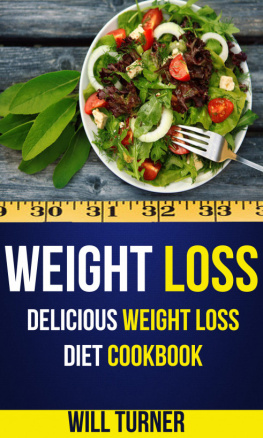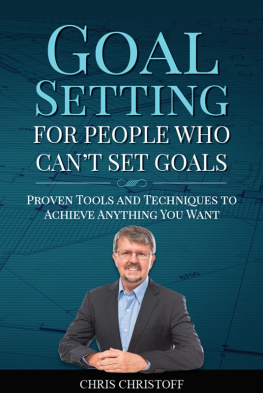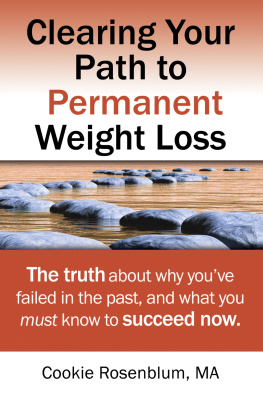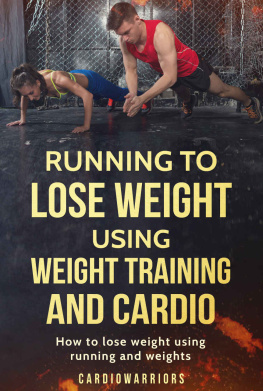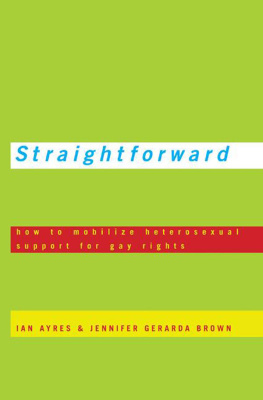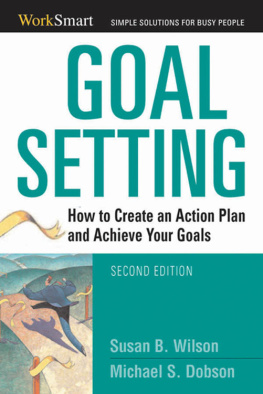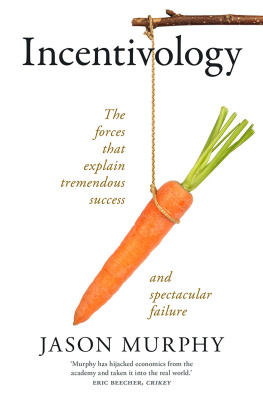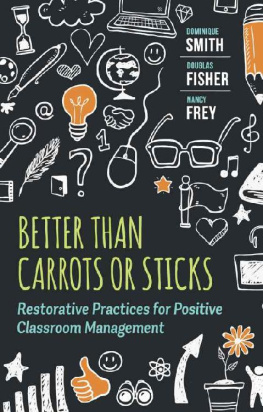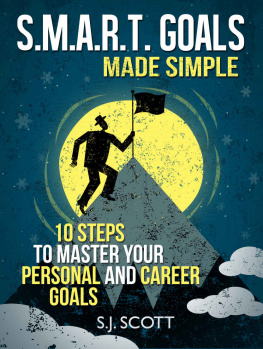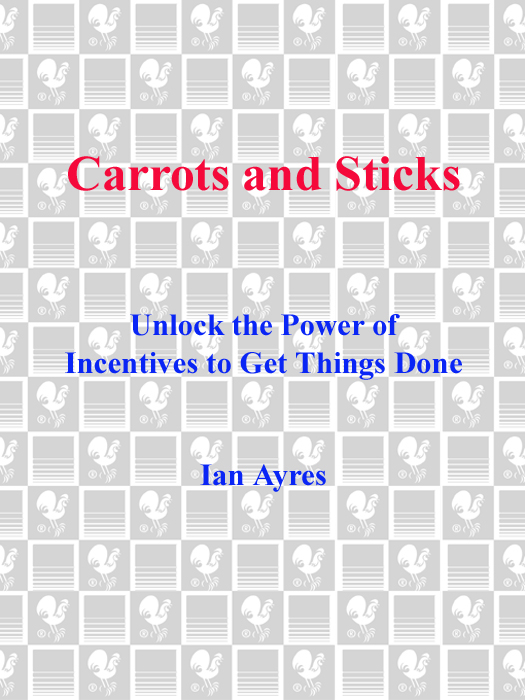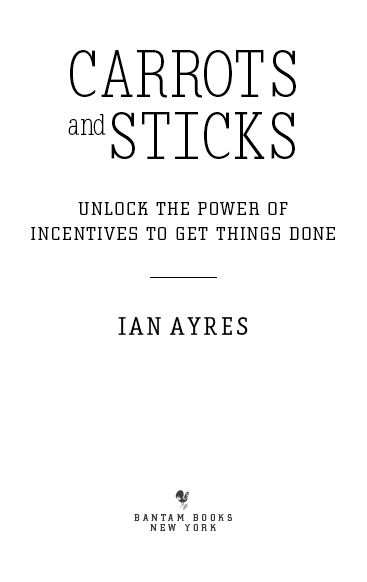ALSO BY IAN AYRES

Responsive Regulation:
Transcending the Deregulation Debate
Studies in Contract Law
Voting with Dollars:
A New Paradigm for Campaign Finance
Pervasive Prejudice?
Unconventional Evidence of Race and Gender Discrimination
Why Not?
How to Use Everyday Ingenuity to Solve Problems Big and Small
Straightforward:
How to Mobilize Heterosexual Support for Gay Rights
Insincere Promises:
The Law of Misrepresented Intent
Optional Law:
Real Options in the Structure of Legal Entitlements
Super Crunchers:
Why Thinking-by-Numbers Is the New Way to Be Smart
Lifecycle Investing:
A New, Safe, and Audacious Way to Improve the
Performance of Your Retirement Portfolio
Carrots and Sticks is a work of nonfiction.
Some names have been changed.
Copyright 2010 by Ian Ayres
All rights reserved.
Published in the United States by Bantam Books, an imprint of The Random House Publishing Group, a division of Random House, Inc., New York.
B ANTAM B OOKS and the rooster colophon are registered trademarks of Random House, Inc.
L IBRARY OF C ONGRESS C ATALOGING-IN- P UBLICATION D ATA
Ayres, Ian.
Carrots and sticks: unlock the power of incentives to get things done / Ian Ayres.
p. cm.
eISBN: 978-0-553-90782-7
1. Commitment (Psychology) 2. Incentive (Psychology) 3. Motivation (Psychology) 4. EconomicsPsychological aspects.
I. Title.
BF619.A97 2010
1582010 009939dc22
www.bantamdell.com
v3.1_r1
For Dean Karlan,
who asked,Why not a commitment store?
Contents
Authors Note

The books I value most are those that provide a central insight that, once recognized, changes the way you view the world and provides you with a tool for action. I like news you can use. Ive written this book because its key idea, that finding the right incentives is often the difference between success and failure, has been both the subject of my work and the source of some significant positive changes in my own life. My hope is that once you see how new incentive structures can, for example, help you quit smoking, lose weight, or better manage your employees, youll begin to recognize other areas of your professional and personal life in which you can craft incentives to reach a desired result.
Introduction

SNEEZE
On January 14, 2008, Alex Moore, an electrical engineer and recent graduate of MIT, did something strange. He promised not to artificially sneeze for eight weeks. Even stranger, he backed up his promise by putting $400 at risk. If in any of the next eight weeks he artificially induced himself to sneeze, Alex would lose fifty bucks. And to make the loss even more painful, any money he lost would be donated to an anti-charity, that is, a charity that Alex doesnt support.
When I learned of Alexs no-sneeze promise, my first reaction was to think it was some kind of weird MIT practical joke. (I went to MIT, and its the kind of place where students measure the Mass Ave bridge in smoots.) But it turns out that Alex was serious. When I was in tenth grade, he said, my English teacher told us that during the Enlightenment, all the great thinkers would roll tobacco into thin tendrils, then tickle the insides of their noses to make themselves sneeze. That night, I was curious to see if it really worked, so I tried with a toothpick. Instant success! And I loved it. You know how a good sneeze just makes you feel invigorated? When Id read books, Id sneeze. When Id do homework, Id sneeze. Id make myself sneeze over and over until Id sound like I had allergies or a head cold for a couple days.
Over the years, Alex tried several times to quit. He made New Years resolutions, but to no avail. Id go a few days without sneezing, he told me, and then Id start again. Ive known I should stop basically since I started, but every time I try, its hard, and Id forget once or twice, and then all bets are off.
So on that fateful day in January, Alex entered into a legally binding commitment contract at a new Internet site, stickK.com, in a serious effort to break the cycle of repeated attempts and failure. He risked forfeiting $400 to the National Center for Public Policy Research (which he described as an anti-environmental charity) because he figured that would be even more incentive than the money. The threat of losing $400 kept him on the straight and narrow.
And the good news is that it worked. After probably thirty attempts to stop completely, I have gone two months without a single sneeze that nature didnt intend, Alex enthused. I went for a run this afternoon, and my lungs were completely clear. Whats more, Alex got his $400 back. He put a lot of money at risk, but at the end of the day the commitment contract didnt cost him anything.
Few people use toothpicks to induce the momentary loss of control of a sneeze. Its easy to think of Alex as cut from a different kind of cloth than the rest of us. But theres a little bit of Alex in all of us. I have never felt the impulse to make myself sneeze, but I have wasted huge amounts of time playing Minesweeper. Almost all of us engage in some activities that we know arent really good for us. We procrastinate. We make resolutions that we dont keep. So instead of seeing Alex as someone different, one challenge of this book is to see how were similar.
More importantly, Alexs solution to his problem, a commitment contract, may be the key to helping people lead happier lives. Commitment contracts provide a simple, powerful, and unifying solution to a host of behavioral problems, and behavioral economics is showing that they really do work. Commitment contracts are promises backed by contingent rewards or punishments. With a commitment contract, if you promise to exercise three times a week, you had better do it or youll be hit by some kind of penalty (or lose out on some kind of reward). Isnt this just an incentive? Yep. People have been using various forms of incentive contracts foreverfrom Odysseus to Curt Shilling, who in 2007 entered into a $2 million weight-loss incentive contract with the Boston Red Sox.
But this book is centrally about how to craft commitments that will work best for you. The new learning of behavioral economics has a lot to say about how best to tailor commitments to make them more effective and virtually free. There are dozens of different choices for how to structure contractual commitments. For example, was it crucial that Alex put so much money at stake or that he designated an anti-charity to receive that money if he lost?
Im not a neutral bystander on these questions. I care passionately about the benefits of commitment contracts and have already put that passion into action. Together with Yale economist Dean Karlan and Yale business student Jordan Goldberg, I founded the service that Alex used to kick his sneezing habit.




